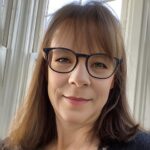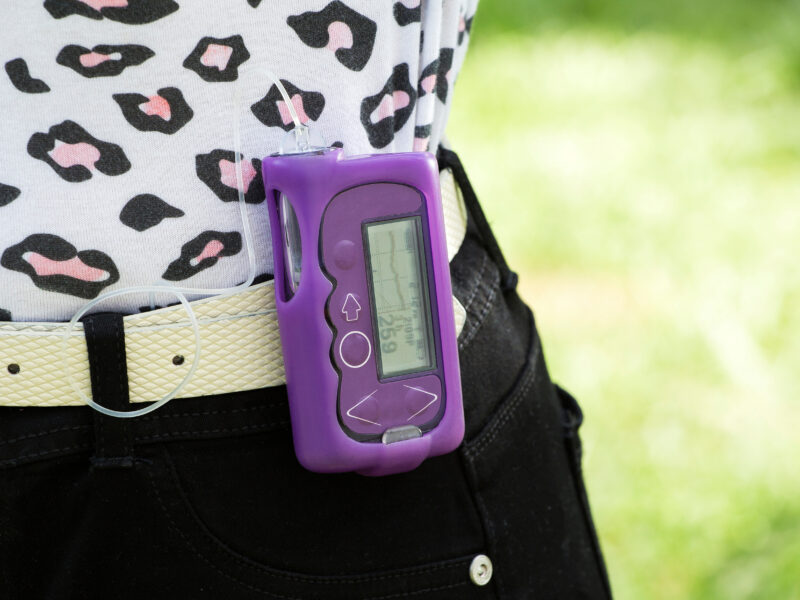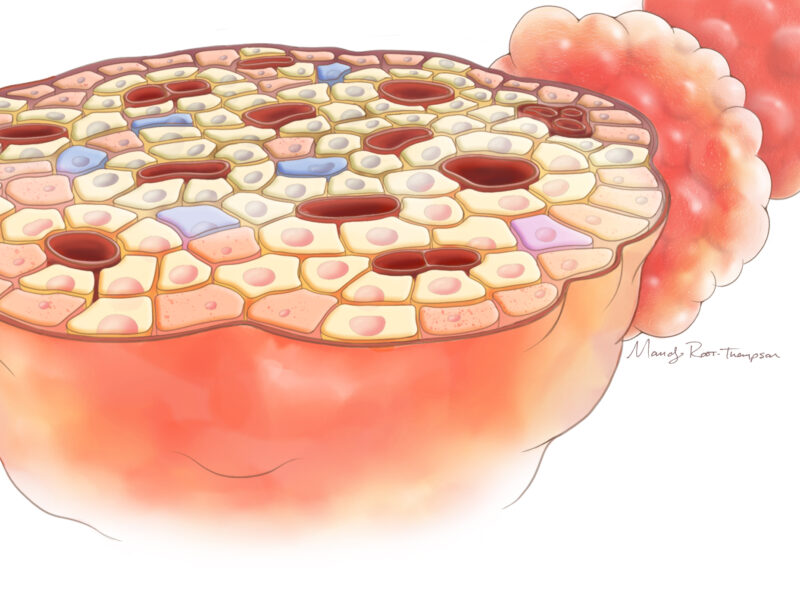Integrating PCOS Research and Clinical Care for Adolescents
Integrating PCOS Research and Clinical Care for Adolescents https://pediatricsnationwide.org/wp-content/uploads/2018/06/TeenGirl.gif 1024 575 Pam Georgiana Pam Georgiana https://pediatricsnationwide.org/wp-content/uploads/2023/07/May-2023.jpg- April 10, 2024
- Pam Georgiana

Researchers at Nationwide Children’s are participating in building the first-ever national registry of adolescent Polycystic Ovary Syndrome (PCOS) patient data through a National Institutes of Health (NIH)-funded research grant. The grant will collect patient data from more than 12 multidisciplinary PCOS clinics, including Nationwide Children’s.
PCOS is a hormonal imbalance that can cause irregular menstrual cycles, acne, unwanted hair growth and mood changes. PCOS is the most common endocrine disorder in women and affects up to 15% of women of all ages, depending on the diagnostic criteria used.
Patients with PCOS often experience higher-than-normal levels of androgens, such as testosterone, and irregularities in estrogen and progesterone levels. PCOS may also involve insulin resistance. These hormonal disturbances cause very diverse symptoms and require management through lifestyle modifications, medications, and other treatments to address both immediate concerns and long-term health risks.
Yet, little is known about how PCOS starts and presents in adolescent patients.
“It can be difficult to determine if a symptom, such as acne or hair growth, is the result of normal puberty or what could be a precursor for PCOS,” explains Andrea E. Bonny, MD, division chief of Adolescent Medicine and principal investigator in the Center for Clinical and Translational Research at Nationwide Children’s. “There are also differing opinions on when and how we diagnose PCOS in adolescents.”
Recognizing the pressing need for improved understanding and management of PCOS in adolescents, Dr. Bonny and Manmohan K. Kamboj, MD, division and section chief of the Division of Endocrinology at Nationwide Children’s and a professor of pediatrics at The Ohio State University College of Medicine, are participating in the NIH research grant as principal investigators.
“This registry is the first step in learning how to take better care of adolescents with PCOS through evidence-based research. For this grant, we will collect and analyze the history and treatment of a diverse group of patients, ages 12 to 18, seen in our clinic,” Dr. Kamboj says.
“We have just started submitting patient data to the registry. It will take time to collect and analyze the data, but we are well on our way,” says Dr. Bonny, who is also a professor of pediatrics at The Ohio State University. Eventually, the data will be made public to other medical researchers and professionals.
Because PCOS can present a multitude of symptoms, Dr. Bonny emphasizes how important it is to identify PCOS correctly and address each patient’s unique needs.
“Many patients have multiple concerns. They may experience or be at risk for obesity, prediabetes, type 2 diabetes, metabolic syndrome, hyperlipidemia, cardiovascular heart disease, sleep disorders, psychosocial disorders, and depression and anxiety,” she explains. “Each patient’s experience is different.”
At the PCOS clinic, patients see a team of providers, including an endocrinologist, dermatologist, mental health professional, registered dietitian, sleep medicine physician, social worker and more. Each provider helps the patient reduce or manage their symptoms.
“We know that lifestyle can trigger or change PCOS symptoms, so we want to make sure that we are treating every aspect of the patient’s life. At the clinic, patients see all the specialists they need to treat their PCOS and enhance their quality of life,” Dr. Kamboj explains.
Reference:
Rasquin LI, Anastasopoulou C, Mayrin JV. Polycystic Ovarian Disease. [Updated 2022 Nov 15]. In: StatPearls [Internet]. Treasure Island (FL): StatPearls Publishing; 2024 Jan-. Available from: https://www.ncbi.nlm.nih.gov/books/NBK459251/
Image credit: Nationwide Children’s
About the author
Pam Georgiana is a brand marketing professional and writer located in Bexley, Ohio. She believes that words bind us together as humans and that the best stories remind us of our humanity. She specialized in telling engaging stories for healthcare, B2B services, and nonprofits using classic storytelling techniques. Pam has earned an MBA in Marketing from Capital University in Columbus, Ohio.
-
Pam Georgianahttps://pediatricsnationwide.org/author/pam-georgiana/
-
Pam Georgianahttps://pediatricsnationwide.org/author/pam-georgiana/
-
Pam Georgianahttps://pediatricsnationwide.org/author/pam-georgiana/
-
Pam Georgianahttps://pediatricsnationwide.org/author/pam-georgiana/August 30, 2023
- Post Tags:
- Adolescent Medicine
- Endocrinology
- PCOS
- Posted In:
- Clinical Updates
- In Brief
- Research










